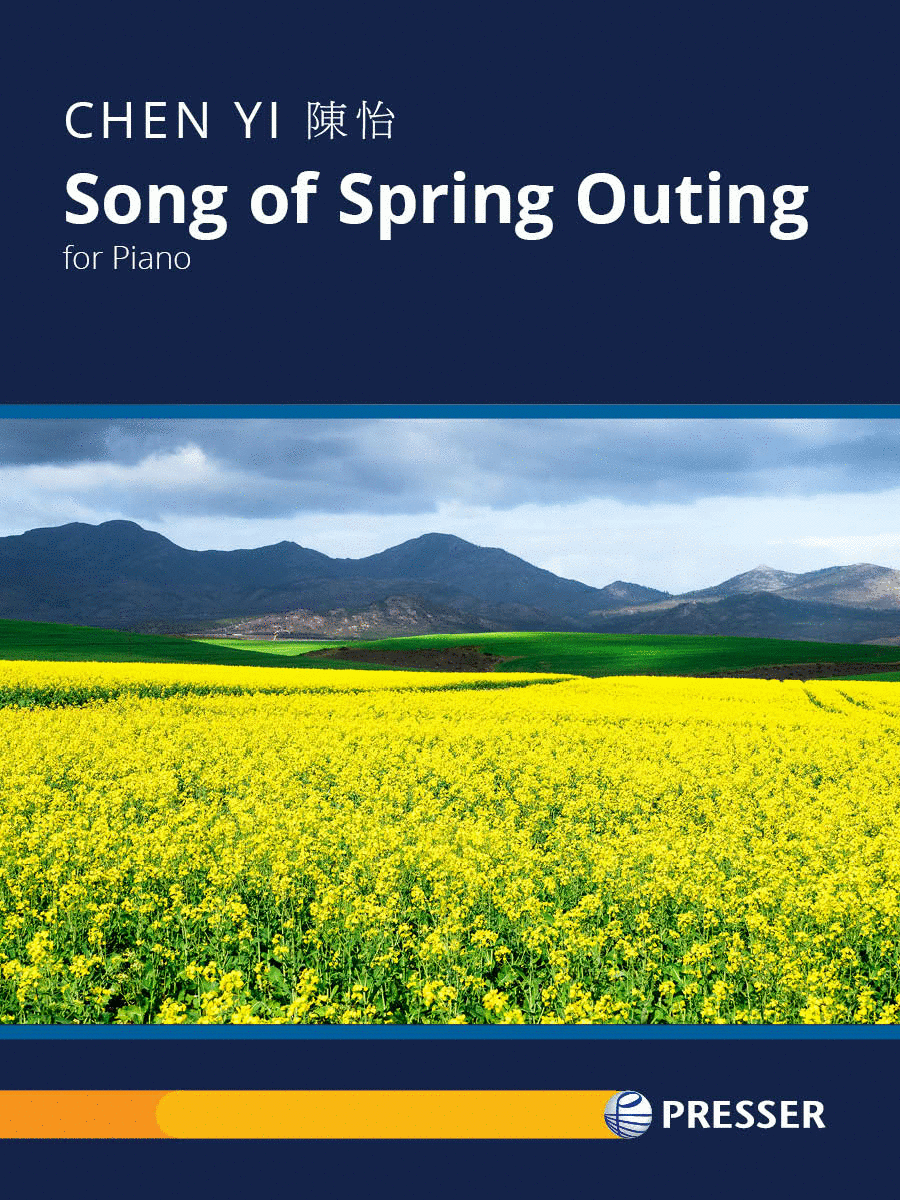Chamber Music Piano
SKU: PR.110418480
Composed by Chen Yi. Performance Score. Duration 6 minutes. Theodore Presser Company #110-41848. Published by Theodore Presser Company (PR.110418480).
ISBN 9781491136294. UPC: 680160688784.
Chen Yi’s beautiful and highly-textured tone poem was inspired by ancient Chinese poetry; its melodic ideas were developed from musical phrases characteristic of Chinese opera. Wang Ya’s original verse as translated by Chen Yi reads:“SONG OF SPRING OUTING”Ten thousand apricot trees by the riverside,Spring flowers bloom after the wind at night.Covered over the garden, colors dark and light,Mirrored in the green water ripples.
SONG OF SPRING OUTING was commissioned by the Center for East Asian Studies and the Asian Classical Music Initiative at the University of Kansas in 2022 for Dr. Yi-Yang Chen to premiere in 2023.The work was inspired by an ancient Chinese poem with the same title:Song of Spring Outingby Wang Ya (Tang Dynasty)English translation by Chen YiTen thousand apricot trees by the riverside,Spring flowers bloom after the wind at night.Covered over the garden, colors dark and light,Mirrored in the green water ripples.This inspiring image is like taking a walk through a beautiful garden with layers of colorful trees and flowers, mirrored in the green water.The opening phrase of the music introduces the signature intervals, the leap of a seventh found in Beijing Opera fiddle’s language, followed by melodic material with a major 2nd and perfect 4th in pentatonic style as the thematic materials. [C-Bb-G in bars 1-2, followed by the top pitches A-B and Ab-E( in bars 2-3]. This statement is brought back (Rehearsal F) in a retrograded form of the introduction at the climatic end of the piece.The musical form is a combination of variations on thematic materials, and a rondo. After the introductory section, Rehearsal A introduces an improvisation-like mountain song melody (developed from the pentatonic material in the introduction).Rehearsal B brings in a lively texture in short groupings with staccato in both hands (using the seventh leap interval introduced in the opening of the piece).Rehearsals C and D develop the introduction’s pentatonic melody and the mountain tune (introduced in Rehearsal A) with more layers in the texture.Rehearsal E develops the material presented in Rehearsal B, with an extended range in both ends of the keyboard, increasing the freshness and excitement.
Arr : Piano soloPublisher : Theodore Presser Co.$16.99 - See more - Buy online
 (AMERICAN COMPANY)
(AMERICAN COMPANY) 

